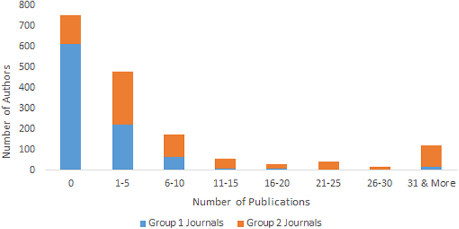In this comment, it was claimed:
Predatory publishers thrive because when you apply for a job or a grant, few read your papers. They check the papers you pinpoint and the number of publcations. That's where these publishers step on and that's why people choose them. Not because they don't know. Of course there might be a few accidentally doing it, like the OP in this question, but most of the people who are in academia for a while select them only to increase faster their publication list.
By contrast, I cannot remember a single case of somebody reporting their experience with such publisher on this very site that submitted a paper to a predatory publisher knowingly (except for exposing them). Now, there is no denying that there is a strong bias here since people who intentionally choose a predatory publisher are less likely to admit it or ask questions here.
So, I am curious: Is there any data or good argument to support the claim that people who publish with predatory publishers are aware that they are not publishing with a regular scientific publisher?

